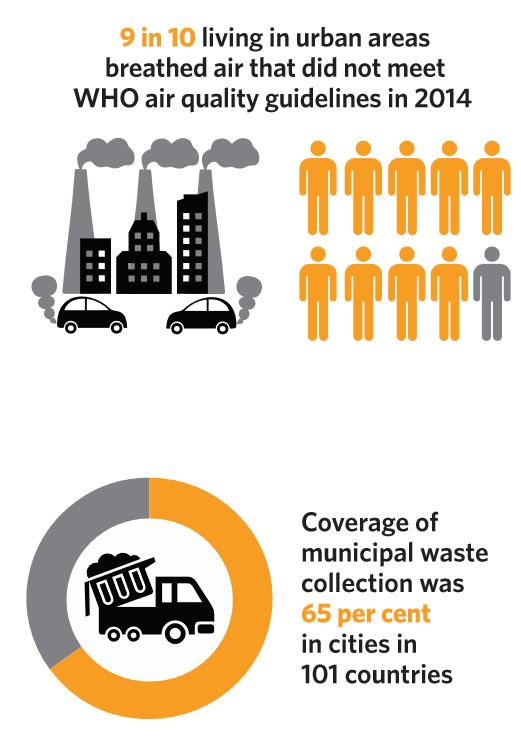The pace of urban growth has been unprecedented. More than half the world’s population, or nearly 4 billion people, lived in cities in 2015. However, while cities are incubators of innovation and help foster increased employment and economic growth, rapid urbanization has brought with it enormous challenges, including inadequate housing, increased air pollution, and lack of access to basic services and infrastructure.
- The proportion of the urban population living in slums worldwide fell from 28 per cent in 2000 to 23 per cent in 2014. However, in sub-Saharan Africa, more than half (56 per cent) of urban dwellers lived in slum conditions.
- From 2000 to 2015, in all regions of the world, the expansion of urban land outpaced the growth of urban populations, resulting in urban sprawl.
- According to data from cities in 101 countries from 2009 to 2013, approximately 65 per cent of the population was served by municipal waste collection.
- In 2014, 9 in 10 people living in urban areas breathed air that did not meet the World Health Organization’s air quality guidelines value for particulate matter (PM 2.5).
- As of May 2017, 149 countries had fully or partially implemented national-level urban policies, most of which are aligned with priority areas identified in the SDGs.
TheSustainableDevelopmentGoalsReport2017


No comments:
Post a Comment
Note: Only a member of this blog may post a comment.